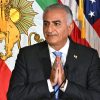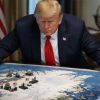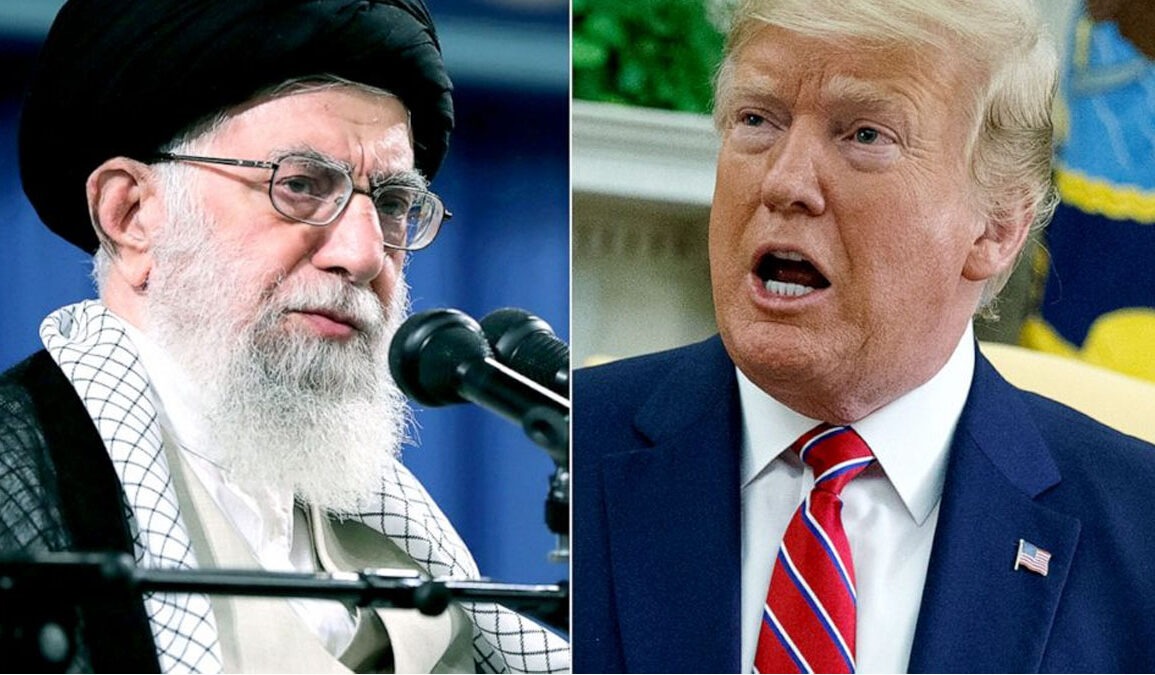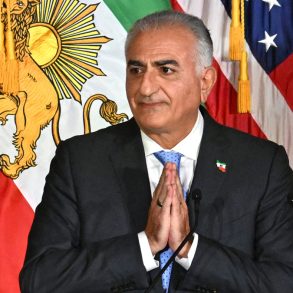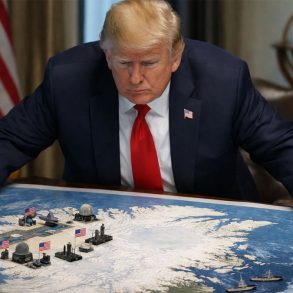President Donald Trump has officially abandoned diplomatic talks with Iran and is now demanding the country’s “unconditional surrender,” signaling a potentially dramatic escalation in U.S. involvement in the growing Israel-Iran war. In a post on his platform Truth Social, Trump declared, “We now have complete and total control of the skies over Iran,” and added bluntly, “UNCONDITIONAL SURRENDER!”
This declaration comes after over 60 days of failed negotiations led by Trump’s special envoy Steve Witkoff, whose proposal called for Iran to gradually dismantle all uranium enrichment on its soil. The Iranians publicly rejected those terms. The breakdown in diplomacy was followed almost immediately by Israeli airstrikes on Iranian nuclear and military targets, which have killed several top Iranian generals and scientists.
“Iran should have signed the deal I told them to sign. What a shame, and waste of human life,” Trump wrote on Monday. He then warned Tehran’s residents, “Everyone should immediately evacuate Tehran.” When asked about that statement aboard Air Force One, Trump responded, “I want people to be safe. That’s always possible something could happen. I just want people to be safe.”
On Tuesday, Trump explained what “unconditional surrender” means to him. “That means I’ve had it. I give up, no more. Then we go blow up all the nuclear stuff that’s all over the place there.”
Israel’s War Draws the U.S. Closer
Israel launched its first round of strikes last Friday, claiming it was acting in self-defense to prevent Iran from acquiring a nuclear weapon. Prime Minister Benjamin Netanyahu said Iran’s nuclear ambitions posed “a danger to Israel’s very survival.” Since then, the conflict has intensified. Iran has launched over 400 missiles and drones, including one that struck a hospital in Be’er Sheva, injuring dozens. The Israeli government has responded by ordering “intensified strikes against strategic targets” in Iran.
While the United States has not formally joined the conflict, it has been steadily moving warplanes, refueling aircraft, and stealth bombers into position. The Pentagon has deployed F-16, F-22, and F-35 jets to the region and moved dozens of KC-135 and KC-46 refueling aircraft into Europe to create what officials are calling an “air bridge.” These assets are capable of supporting U.S. bombers in a long-range strike on Iran’s underground nuclear site at Fordo, which is buried deep within a mountain.
Only one weapon in the U.S. arsenal is capable of reaching it: the 30,000-pound Massive Ordnance Penetrator, which can only be carried by a B-2 stealth bomber. Officials confirmed that bombers from Whiteman Air Force Base in Missouri are now on alert.
Vice President JD Vance wrote on social media that Trump “has shown remarkable restraint” but may now be forced to act. “Iran has no need for nuclear fuel enriched above the level needed for commercial power. The president may decide he needs to take further action to end Iranian enrichment. That decision ultimately belongs to the president.”
The Iranian Response: Defiance, Not Diplomacy
Supreme Leader Ayatollah Ali Khamenei responded with fierce defiance. “The U.S. President threatens us. With his absurd rhetoric, he demands that the Iranian people surrender to him,” he said. “The Iranian nation isn’t frightened by such threats.” Khamenei continued, “We will never surrender in response to the attacks of anyone. This is the logic of the Iranian nation. This is the spirit of the Iranian nation.”
Iranian Foreign Minister Abbas Araghchi said negotiations could resume only if Israel stopped its attacks. “If President Trump is genuine about diplomacy and interested in stopping this war, next steps are consequential. Israel must halt its aggression,” he posted. He also suggested that Trump could rein in Netanyahu with “one phone call” and that doing so might “pave the way for a return to diplomacy.”
In an additional statement on state television, Khamenei warned the United States against further involvement. “The U.S. entering in this matter is 100 percent to its own detriment. The damage it will suffer will be far greater than any harm that Iran may encounter.”
Iran has also begun preparing ballistic missiles for a potential retaliatory strike against U.S. forces in the region, according to defense officials. The country’s leadership continues to insist it has the right to enrich uranium, even as it accuses the U.S. of being complicit in Israel’s military actions.
Internal U.S. Debate Over War Powers
Back in Washington, Trump’s aggressive rhetoric has reignited debate over presidential war powers. On Capitol Hill, a group of bipartisan lawmakers introduced resolutions to require congressional approval before Trump can order offensive strikes against Iran. Representative Ro Khanna, a Democrat from California, and Representative Thomas Massie, a Republican from Kentucky, co-authored one such resolution. Senator Tim Kaine introduced a similar version in the Senate.
“These actions are too dangerous to be left to one person,” Khanna said in a press briefing. “We’ve seen the consequences of unauthorized wars.”
Still, these efforts face steep opposition. Speaker Mike Johnson has so far avoided any votes that would force Republicans to challenge Trump’s authority. Defense hawks in the Senate continue to back the president. Senator Lindsey Graham said, “I want us to go all in to help Israel destroy their nuclear programs.” Senator Bernie Moreno added, “I have total faith and confidence in the president of the United States.”
Trump, for his part, told reporters, “I may do it, I may not do it. Nobody knows what I’m going to do.” He brushed off intelligence reports that Iran had not resumed its nuclear weapons program, saying, “I don’t care what she said. I think they were very close to having them,” in reference to Director of National Intelligence Tulsi Gabbard’s earlier testimony.
Nuclear Fears and Rising Stakes
Some foreign policy experts believe that a U.S. strike could push Iran to restart or accelerate a nuclear weapons program. Rosemary Kelanic, who leads the Middle East program at Defense Priorities, warned that “the incentive to get a nuclear deterrent would multiply dramatically if the United States joins the war.”
Iran’s state television has been airing warnings to its citizens, urging them to delete WhatsApp and other encrypted apps they claim are leaking information to Israel. WhatsApp denied the claims and said it does not share data with any government.
Meanwhile, former Arkansas governor and current U.S. Ambassador to Israel Mike Huckabee drew a dramatic comparison. In a message to Trump, which the president reposted, Huckabee said Trump’s decision was similar to the one Harry Truman faced in 1945 before authorizing the atomic bomb. “No president in my lifetime has been in a position like yours. I trust your instincts.”
Trump’s demand for unconditional surrender has left global leaders alarmed. French President Emmanuel Macron publicly misunderstood Trump’s departure from the G7 summit, believing he had gone home to negotiate a ceasefire. Trump corrected him on Truth Social, saying, “He has no idea why I am now on my way to Washington, but it certainly has nothing to do with a Cease Fire. Much bigger than that.”
The G7’s final statement did not include a push for de-escalation, as originally planned, but rather affirmed Israel’s right to defend itself and warned that “Iran can never have a nuclear weapon.”
As tensions escalate and the military options are prepared, President Trump has made one thing crystal clear: “We’re not looking for a ceasefire. We’re looking for an end.”

